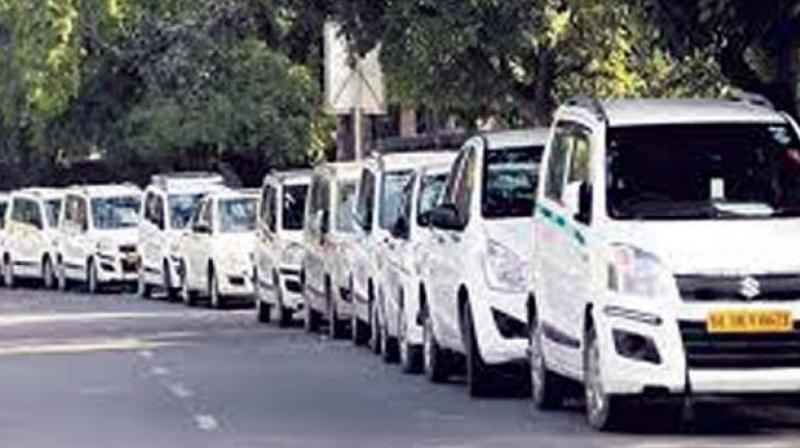Bengaluru cab users flay carpool ban
Only vehicles with a stage carriage permit, such as public buses, are allowed to pick up and drop passengers at multiple points.

Bengaluru: The transport department’s decision on Friday to ban carpool services by cab aggregators has not gone down well with city’s commuters, who feel that the move will make taxi rides expensive.
Jeshta H.M., a techie who regularly uses Ola Share and Uber Pool services, said, “There is no Metro connectivity to Whitefield and other IT hubs. Cab share services are the only affordable and reliable option for working professionals. With the government banning the service now, we have to shell out more for our commute now.”
As per the state transport department guidelines, services like Ola and Uber fall under the contract carriage permits and cab aggregators cannot pick up and drop passengers during the course of a ride as it is only point-to-point pick up and drop. Only vehicles with a stage carriage permit, such as public buses, are allowed to pick up and drop passengers at multiple points.
Urban mobility experts too felt that the government has taken a wrong decision by imposing the ban on carpooling, as ridesharing and carpooling services reduce the number of vehicles on the road. “The government needs to support and promote such solutions. Instead, it is harassing hapless citizens. The ban also will bring more single occupant vehicles onto roads. As Metro services are inadequate and rail network is negligible in the city, people depend on such services. But now, they have no option left,” said Mr Purrushotham, an urban expert.
Cab drivers and union members welcomed the ban, saying that shared cab service is a big mafia being run by cab aggregator companies to fleece passengers. “People have no idea what happens behind the scenes. While passengers are being fooled by seemingly low fares, the drivers are not gaining financially by carpool services,” union leaders, who wished not to be identified, told Deccan Chronicle.
They also pointed to a recent incident of a cab driver and co-passengers molesting and trying to sexually assault a woman inside a locked car in Bengaluru. Carpooling services gained popularity initially as the rides cost up to 50 per cent less than the usual fares, which are already cheaper than regular taxis.

